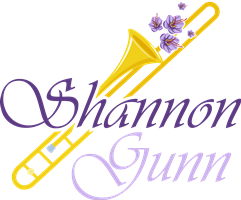In order to learn, your mind has to be in a relaxed state. When relaxed, you can explore, inquire, and enter “flow”. Flow is defined as that state of mind when you are focused, fully engaged, and deeply enjoying your task at hand. Game design theory is focused on getting gamers to “flow” state, which is why games are so popular, successful, and addictive.
When jazz teachers are constantly talking about the “good old days” – they are reminiscing about days gone by, the better days, but in that process they are inherently shutting down the learner’s pathway to learning, because their ego is in the way. A learner needs to feel safe and secure to learn, and the feeling of being “less than” their instructor is a blockage to security.
At the same time, learning doesn’t have to take place in a state of rainbows and unicorns. Students reach their highest level when their instruction hits at the zone of proximal development – that edge of their knowledge. It’s up to the teacher to find this sweet spot, put their learning into context, and pull them through a rigorous lesson so as to help them maximize their performance potential. If the focus is on the student, then efficient and effective learning will occur. Removing ego will actually raise the bar and incorporate rigor into the lesson.
Also to note, the teacher should be in charge. Ego does not have to equate to authority. There is an art to this which is very difficult to describe but innate in excellent musical instruction settings. It’s about empowerment and support. In excellent educational settings, there is one person at the top, which seems very autocratic, but that person is a leader in that they inspire, motivate and empower those below them. Leadership combined with musicianship and content knowledge empowers and educates learners to reach their highest potential.
One might say, I deserve my ego. I have paid my dues.
To those who say this, I don’t disagree. What I’m talking about is that rate of learning, that state of flow, the maximum increase of knowledge in the shortest amount of time. You can have an ego and teach. You can project your ego on others and they will still learn. It goes a little bit slower, that’s all. All I’m saying is to try to remove your ego from the classroom and you may see exponential results. Look at yourself as a leader, and lead by example. Remove the ego from the rehearsal, lesson, or bandstand, but carry it proudly off the podium.
Consider this ego when you are frustrated with their learning, when you are ready to throw in the towel. Music is a high pressure art form. You have a deadline, a goal, and you can scaffold your students to get there. The key is to remove blockages (perhaps of ego) and support them 100%. Tell them you’ve got their back. Students can withstand pressure and rise to the occasion if they feel supported.
Then, one might say, why? And this is my biggest beef with jazz “education”: I have a theory that a lot of teachers don’t want to see their students succeed because they will become competition. All I can say to that is, there is no competition if you are an artist. Nobody can replicate your artistry because that is who you are. Adopt a mindset of abundance and you will have all the gigs you want and need.
